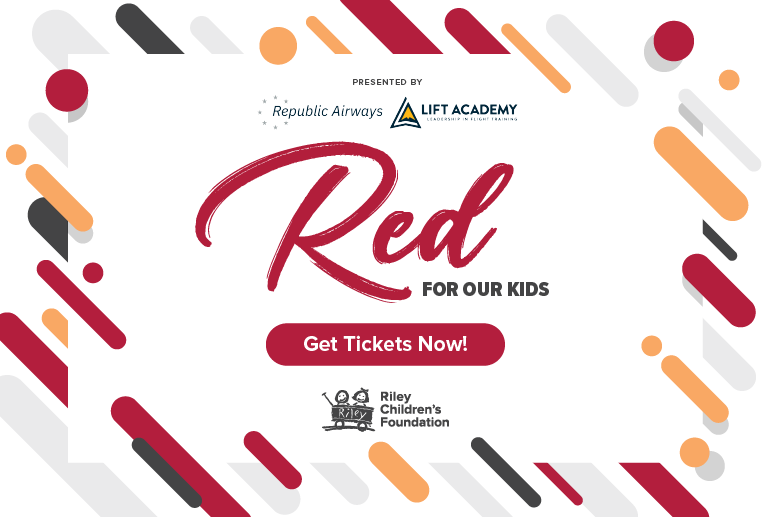Imagine What's Possible

Carlie Evans weighed 1 pound, 4 ounces on the day she was born. Not only was she battling all of the challenges of a micro-preemie, she was also diagnosed with a critical heart defect. At just over 3 months old, Carlie underwent heart surgery at Riley Children’s Health to repair her heart and save her life. Surgery was a success, and today Carlie’s energy and joy belie the shaky way she came into the world.
But what if she could have avoided surgery altogether? Through research, such extraordinary feats may one day be possible.
A Riley-affiliated scientist is studying why infant hearts sometimes develop incorrectly, causing congenital heart defects like Carlie’s. The long-term goal is to discover better treatments and to potentially prevent this serious condition.
That research study is just one of dozens being led by Riley-affiliated researchers who all share the same vision: to improve health for children in Indiana and around the world.
One Riley physician is developing new therapies to help children with severe asthma breathe easier. Another scientist is working to prevent a common genetic disorder from causing cancer. Several others are laser-focused on diabetes.
TOP 10… AND GROWING
Collectively, the research team – a partnership between Riley Children’s Health and the Indiana University School of Medicine Department of Pediatrics -- received a total of $34.8 million in funding from the National Institutes of Health in the fiscal year that ended in September.
That once again makes the Riley/IU program one of the top 10 pediatric research groups in the country. It represents a 7 percent increase in NIH funding over the previous year and the program’s highest level ever.
Why does this ranking matter to the average Hoosier?
We know research is the key to improving treatments – whether that’s more effective (and less brutal) cancer therapies or medications that help preemies graduate from the NICU. It takes years – and millions of dollars – for a promising idea to make its way from the laboratory to patients. The NIH’s remarkable investment in the Riley/IU team indicates some of the most accomplished scientists in America trust Riley to get the job done. That’s something we can all be proud of.
Research conducted in Indiana also means Indiana kids have access to the most promising therapies as they are being developed through clinical research studies. When standard therapies have failed, these clinical studies are often the best hope for families.
DONORS ARE THE SPARK
Growth in the Riley/IU research program can be directly traced to increased support from donors.
Gifts to Riley Children’s Foundation have enabled the team to recruit more researchers from around the country and to train the next generation of research leaders. They provide critical resources to test ideas and generate early results. Armed with those findings, scientists can then apply for large grants from entities like the NIH.
And when therapies are deemed safe and effective in the laboratory, philanthropy provides seed funding to launch clinical trials that are a vital step in the approval process.
I’m proud to say Riley Children’s Foundation is investing more than $11.5 million in Riley/IU research this year alone. And our goal is to continue growing that number.
We’re motivated by the idea of what’s possible… of what’s next… of how research can ease suffering and restore health. Most importantly, we’re motivated by kids like Carlie and thousands of others who will benefit from research discoveries being made at Riley.
Liz Elkas
President and CEO, Riley Children's Foundation
I am an advocate for children and the President and CEO of Riley Children's Foundation.
